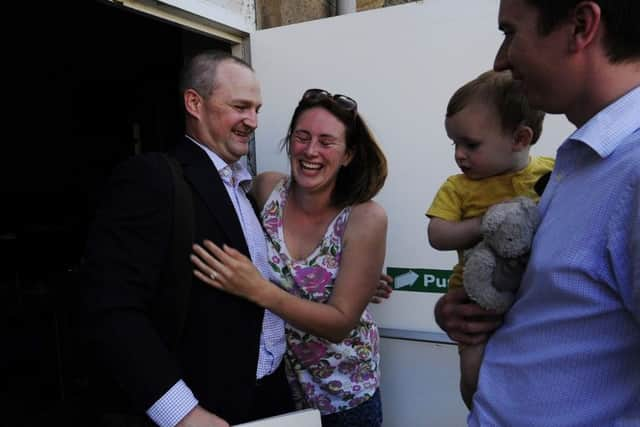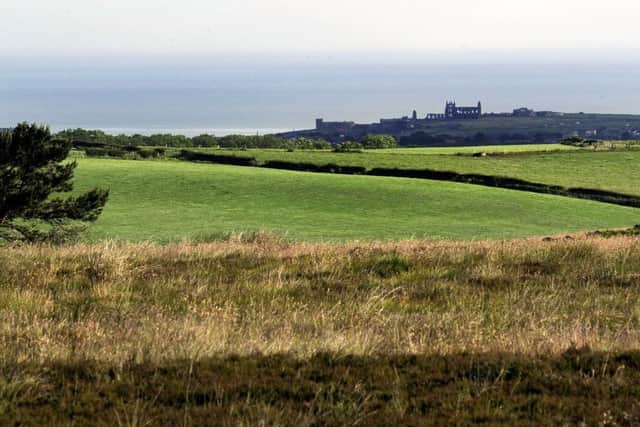What is potash - and why mining it could save North Yorkshire’s economy


It has been two years in the planning process since the original submission in 2013 and it took eight hours of deliberations on Tuesday to pass the project - in the end with a majority vote of just one.
Despite the questions that faced planners, which essentially boiled down to whether the economic and employment benefits would outweigh the harm to the North York Moors National Park - there has been little such moral dilemma amongst the communities surrounding the development.
Advertisement
Hide AdAdvertisement
Hide AdBacked by parish councils, the principal of the local college, both the Scarborough borough and North Yorkshire County Council authorities York Potash’s project is largely seen as the once in a “several generations” opportunity to both change, shape and secure the viability of the historic town of Whitby and the surounding area.


There were cheers and scenes of celebrations when the final show of hands was counted at Tuesday’s meeting.
From farmers to landowners to butchers to local artists they all speak of how this mine at the former Dove’s Nest Farm site in the small outlying village of Sneatonthorpe will help buck the trend of flagging industry in Whitby.
Andrew Radford, is a farmer and butcher with a business at Sleights.
Advertisement
Hide AdAdvertisement
Hide AdHe told The Yorkshire Post: “Whitby’s historical industry was fishing and that is just about extinct. Go into rural parts and a lot of it is long gone - a lot of farms have had to diversify to holiday lets.


“I used to farm on Aislaby side back in the early 1980s. Every farm was dairy and now there are none.
“To get anywhere you have to be farming 500 acres of arable or beef you need to be producing 12 to 15 per week to run a sale of seven a week and all of these are dwindling so we need something as prosperous as Sirius.”
As well as the jobs themselves that are being created Mr Radford says the wage packets will benefit independent businesses like his.
Advertisement
Hide AdAdvertisement
Hide AdHe added: “It is only going to improve small businesses such as ourselves and I think we can employ more people when the mine gets fully operational.


“Over the 30 years I have been in Sleights you get to know customers and I know they are employed at Boulby Mine or on the rigs and they do have more money to spend and they can afford to be concerned with the quality and locality of the product they are buying.
“That then goes down the line for our suppliers, farmers and even things like packaging.”
Landowners who own the fields on top of the billions of tonnes of potash also stand to gain financially, probably netting around £35 million a year between them.
Advertisement
Hide AdAdvertisement
Hide AdBut John Cook, who farms at Harewood Dale, said this is not the main reason farmers in the area were behind the plan. “It’s mainly about the jobs,”


Barry Dodd, the chairman of the York and North Yorkshire Local Enterprise Partnership, said it was the single biggest investment in the north of England “by a billion miles”.
Sirius says the mine will access 1.3 billion tonnes of polyhalite and keep the mine in business for 100 years.
What is polyhalite?
Polyhalite is a form of potash which uniquely combines four of the six essential nutrients plants need - potassium, magnesium, sulphur and calcium.
Advertisement
Hide AdAdvertisement
Hide AdA key factor in rising potash demand is linked to the overall growth of the world’s population and the need for food and also the need to sustain increased livestock herds.
The only known resources of potash in the UK are along the North Yorkshire coastline.
The potash seam lies a mile below the surface of the ground and will be transported via a 37 kilometre mineral transport tunnel to a processing plant in Teesside.
READ MORE: